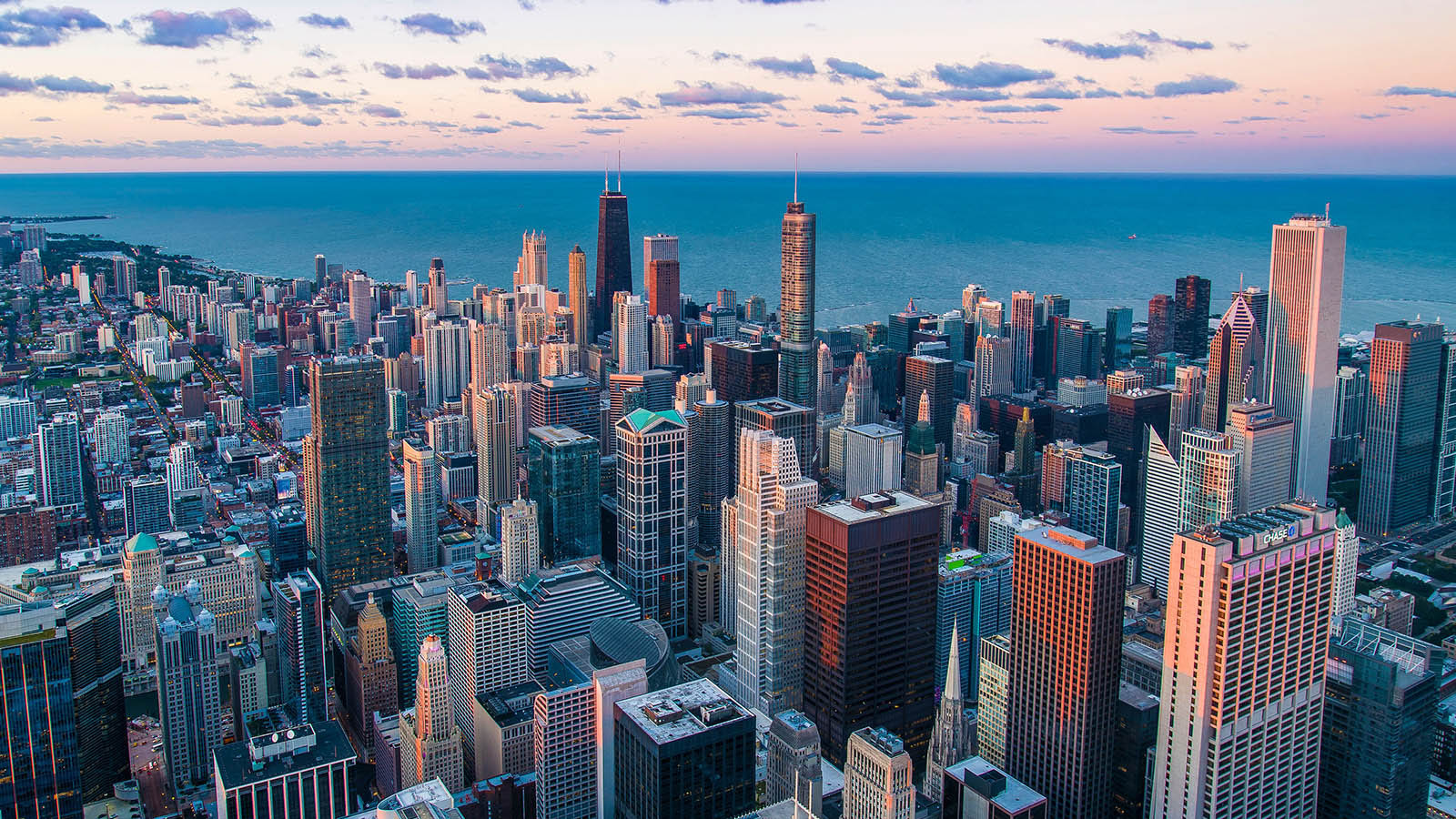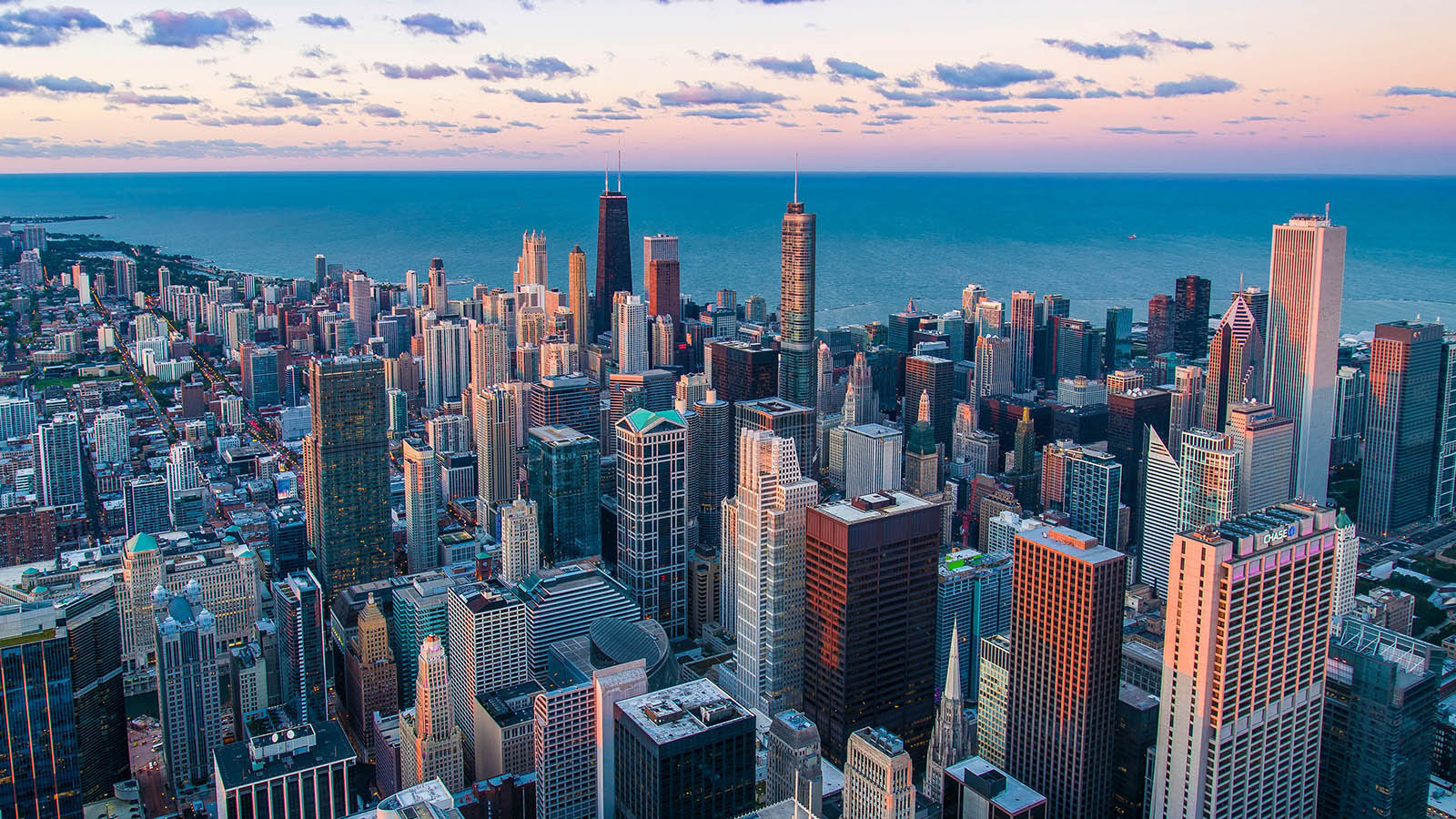
In a historic move, Illinois is poised to become the 11th state to legalize marijuana and the first to do it through legislative action, not through a voter-approved ballot initiative. Making good on his campaign promises, Democratic Illinois Gov. J.B. Pritzker is widely expected to sign the Illinois Cannabis Regulation and Tax Act into law in the coming days.
But unlike some other less complicated legislation, the law doesn’t immediately go into effect. Turning back 80 years of prohibition and regulating a new industry will take some time. But the clock is counting down to 2020.
Here is a short guide to what happens next.
When do cannabis sales become legal in Illinois?
On Jan. 1, 2020, adults 21 and older will be able to legally purchase cannabis products. Purchases will not be limited to Illinois residents.
Where can I buy cannabis?
Starting opening day, consumers of legal age can buy weed from one of nearly 60 existing medical marijuana dispensaries around the state. New dispensary licenses will be issued starting in May 2020.
What can I buy?
Illinois residents will be able to legally purchase up to 30 grams, or about 1 ounce, of raw marijuana, 5 grams of cannabis concentrates, and cannabis-infused products such as edibles with less than 500 milligrams of THC. Non-residents will be allowed to purchase and consume one-half of those amounts.
Will it be legal throughout the state?
Municipalities and counties will have the choice to opt out from offering adult-use cannabis sales. However, residents and visitors in those areas still can legally possess and consume weed.
Where can I consume cannabis?
Consumption is legal in private residences outside of public view and away from anyone younger than 21. Don’t light up at Wrigley Field, though. Public consumption of cannabis products is prohibited. It remains illegal to consume cannabis in cars, planes, trains, boats, and other vehicles. Law enforcement and fire department employees may not use cannabis while on the job. However, some dispensaries may allow consumption on their premises in consumption lounges, the equivalent of private clubs. This is a gray area not specifically licensed and is more up to local cities and municipalities to approve. Apartment buildings and condominiums are legally entitled to prohibit consumption. The law also prohibits smoking cannabis in any place where smoking is prohibited under the Smoke-Free Illinois Act.
Can I Grow Marijuana at Home?
If you are one of the 65,000 Illinois residents with a valid medical marijuana card, you can grow up to five plants at home. However, home grows remain illegal for anyone else. The 20 licensed cultivators currently supplying the medical marijuana market are the only other entities legally entitled to grow marijuana in Illinois.
Who Will Regulate Adult-Use Marijuana?
Medical marijuana cultivators and dispensaries will become dual-use; that is, they’ll also become the first source for recreational marijuana in Illinois. By May 1, 2020, another 75 dispensaries may be licensed and another 110 by Dec. 21, 2021. The new law will allow up to 300 dispensaries from the currently licensed 60. Three Illinois agencies will regulate marijuana: the Department of Agriculture, the Department of Financial and Professional Regulation, and the Department of Public Health; and a coordinator would overseeing them, said Dan Linn, Executive Director of the Illinois chapter of the National Organization for the Reform of Marijuana Laws (NORML).
How Are Existing Dispensaries Gearing Up for Opening Day?
Linn, who is also the general manager for two Illinois medical marijuana dispensaries, said cultivators are working day and night to expand rapidly, predicting, “We could see significant product shortages and price-gouging if stores run short on supply.”
“Dispensaries are doubling and tripling their staffs and looking to expand to larger facilities to prepare for the tidal wave of opening day demand,” Linn said.
Demand for legal marijuana is expected to surge when Illinois officially ushers in new regulations for all aspects of the industry on Jan. 1, 2020. (Photo by Kristen Angelo)
How About Out-of-State Visitors?
Linn called the dilemma for out-of-state tourists a “very real pickle. Illinois tourists can buy cannabis products, but they can’t smoke them in their cars, parks or hotel rooms. Consuming capsules and edibles can be done discreetly. But if they toke up at Soldier Field, they could face repercussions.”
How Will Cannabis be Taxed?
Lin said consumers will pay between 19% and 35% in taxes on cannabis and marijuana products, depending upon their potency and the location of the purchase.
“In addition, the state is taxing different marijuana products differently: 10% for THC levels below 35%; 25% taxes for products with THC concentrations above 35%; and 20% for infused products like edibles. It will be a nightmare sorting them out.”
Linn told Weedmaps News that the high taxes could slow the shift from the illicit to the legal market.
Karen O’Keefe, director of state policies at the Marijuana Policy Project (MPP), said surveys indicate that 9% of Illinois’ 12.7 million residents use marijuana, meaning the market of users could exceed 1 million. She said that if the supply of marijuana is enough to meet demand, consumers will likely pay the higher taxes.
How is the Tax Revenue Distributed?
The law allocates 35% of revenues produced by commercial cannabis sales to the state’s general revenue fund; 25% to restoring and reinvesting in communities disproportionately impacted by the federal war on drugs, namely communities of color, 20% to substance abuse and mental health programs;10% to pay unpaid state bills, 8% to substance abuse prevention and law enforcement; and 2% to public education and safety campaigns.
How Does the Law Address Social Justice and Equity?
The new law authorizes Pritzker to pardon convictions for offenders charged with possessing less than 30 grams, or 1 ounce of marijuana. Expungements automatically follow. For convictions for possessing between 30 and 500 grams, or 1 to 18 ounces, offenders or county state’s attorneys can petition to vacate or expunge, but prosecutors are permitted objections. The Illinois State Policy Advisory Council estimated there could be as many as 770,000 residents eligible for expungements.
The law also creates a multi-million-dollar Cannabis Business Development Fund to finance loans for small businesses, targeting individuals and communities impacted by high rates of cannabis convictions. Existing medical marijuana dispensaries will pay into that fund, while future dispensaries will contribute a portion of future sales. Individuals with cannabis arrests or convictions, or residents of communities hardest hit by the war on drugs will get preferences in job hiring and cannabis business licenses.
How Does Federal Law Affect Legalization in Illinois?
Cannabis remains illegal under federal law and individuals and companies growing, selling, and possessing cannabis could still face federal prosecution. However, Linn pointed out that federal law enforcement typically has not prosecuted possession of small cannabis amounts, or marijuana businesses complying with legal state programs.
While former U.S. Attorney General Jeff Sessions rescinded the Obama-era Cole memorandum stating that the federal government would not enforce federal marijuana prohibitions in states that have legalized marijuana, current Attorney General William Barr has said he would abide by the memorandum, meaning federal prosecutions of minor marijuana violations are unlikely.
How Will the Law Approach Vertical Integration?
Linn said Illinois’ current medical marijuana program allows vertical integration — the ownership or control of all stages of the cannabis supply chain, from cultivation, production, and transportation to dispensary ownership — but places limits on how many cannabis businesses an individual or entity can own.
How Can I Start a Marijuana Business?
Be prepared to dig deep. Non-refundable application fees for transporters, processors, craft growers, large-scale cultivators, and dispensaries range from $2,000 to $40,000, while annual licenses cost up to $100,000.
How Much Tax Revenue Would Legalization Raise?
MPP and NORML estimated that Illinois could reap between $350 million and $700 million for Illinois coffers when the state adult-use market matures. Illinois NORML predicted first-year tax revenues of $150 million to $200 million.
What Are Some of the Penalties for Breaking the Law?
Possession of 10 grams or less, or .35 ounces, will be a misdemeanor punishable by a civil fine up to $200. A first offense of possessing between 10 and 30 grams, or about 1 ounce, is a misdemeanor punishable with up to one year in prison and a $2,500 fine.
Sales and trafficking of fewer than 2.5 grams, or .08 ounces, is punishable by a $1,500 fine and up to six months in prison. Cultivation of fewer than five plants, or possession of paraphernalia with more than 10 grams of weed, are both misdemeanors punishable by $2,500 fines and six months to one year in prison. Trafficking, sales, and cultivation of as little as 30 grams or 50 plants respectively can reap 10-year prison sentences and $25,000 fines.
Feature image: Illinois stands to become the first state to legalize marijuana and create a commercial market through the legislative process instead of through a voter-led ballot initiative. (Photo by Pedro Lastra on Unsplash)











